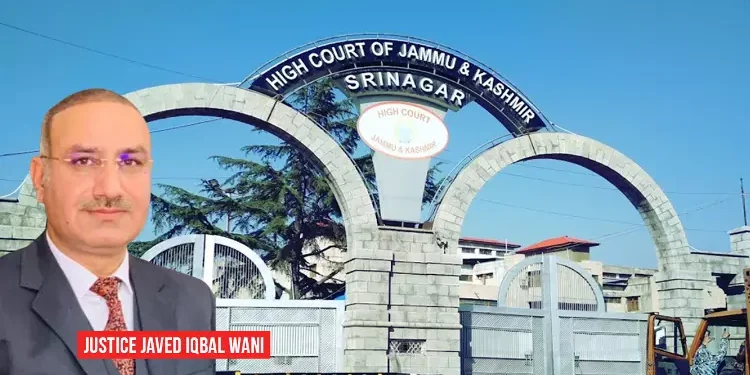The High Court of Jammu and Kashmir and Ladakh has reaffirmed the extensive discretion that a court possesses under Section 311 of the Criminal Procedure Code (Cr.P.C.) to ensure a fair and just outcome.
In a judgment delivered by Justice Javed Iqbal Wani, the court emphasized that the broad language of Section 311, allowing “any court” to summon witnesses “at any stage” of the proceedings, should not be unduly restricted.
These observations were made in a case involving petitioner Farooq Ahmad Wani, who was accused of dishonoring a cheque in favor of Respondent Tariq Ahmad Khan. During the trial before the Chief Judicial Magistrate, Anantnag, Wani’s counsel chose not to present any defense evidence.
Subsequently, Wani filed an application under Section 311 Cr.P.C. seeking permission to summon witnesses to establish that he had made payment for the cheque amount outside the court. The trial court rejected this application, citing the earlier decision of Wani’s lawyer and the time elapsed in the case. The revisional court upheld this decision.
Wani challenged these orders in the High Court. His lawyer argued that Wani had never authorized the initial decision to refrain from presenting a defense.
Justice Wani stressed that the purpose of Section 311 is to uncover the truth and ensure a just verdict by considering all relevant facts. He remarked,
“The use of the expressions ‘any court’ and ‘at any stage’ in the Section clearly indicates that the section is drafted in the widest possible terms and does not limit the court’s discretion in any way.”
However, the court also cautioned that such wide powers must be exercised judiciously and in the interest of justice, without using them to fill gaps in evidence unnecessarily.
Acknowledging the petitioner’s submission that he had not authorized the initial decision made by his lawyer, Justice Wani held that the petitioner could not be held responsible for a statement made by his lawyer without proper instruction.
Regarding the contention on whether the trial court could reject the petitioner’s application based solely on the age of the case or the time taken in its trial, the bench referred to the precedent and reiterated,
“The age of a case alone cannot be decisive when a request is made for the examination of a material witness.”
In light of these observations, the court granted relief to Wani. The impugned orders were set aside, allowing him to present the witnesses mentioned in his application before the trial court on the next hearing date or a subsequent date as fixed by the court.

















